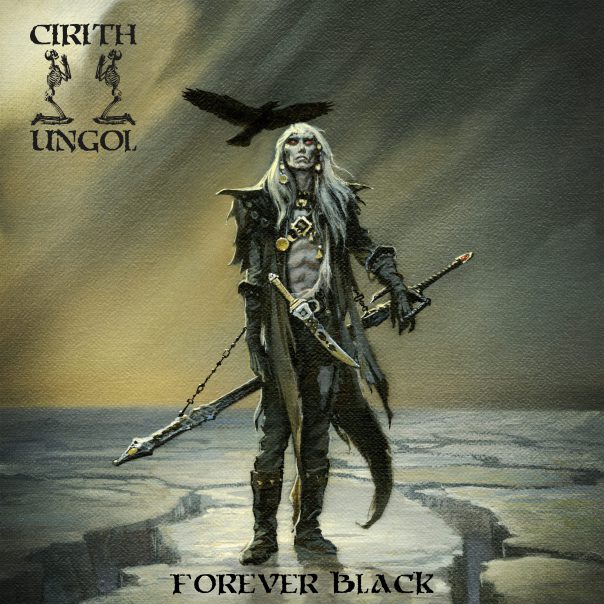REWIND: Catch up with some bands from 1982’s ‘Metal Massacre’

Cirith Ungol, “Forever Black.”
My impulse buy of the week was a 40th anniversary re-release of Metal Blade Records’ first Metal Massacre compilation record, a collection of some of the hottest new metal artists of the year. There’s probably nobody you’ve heard of on the record unless you’re into the Los Angeles underground scene, but it contains some real up-and-comers.
Since it was some local bands on a small, niche indie label, there’s probably some funny stories about how they’re insurance salesmen or something now, insisting to their coworkers that they used to be in a metal band to raucous laughter. So let’s catch up with some of them, as a sort of fun “where are they now” segment.
Bitch — “The Bitch Is Back”
After appearing on Metal Massacre, Bitch went on to release its first album, Be My Slave. There were the standard management problems, of course, that held up the second album, The Bitch Is Back. Not only is it an appropriate name for a second album that took four years for a band named Bitch, but it includes the above cover of the Elton John song of the same name.
The second album did a lot better than the first because Tipper Gore singled it out as evil in her ludicrous crusade against any music worth listening to. Bitch, you see, billed itself as “dominatrix metal” and was notorious for its theatrical S&M-themed live shows. And kids never change, so once Tipper Gore hated it, everyone else loved it.
Currently, the band technically exists, but only lead singer Betsy remains of the original lineup and the band hasn’t released an album since 1988.
Steeler — “No Way Out”
Steeler only released one album before breaking up, but it’s notable for being the first band Swedish guitar legend Yngwie Malmsteen played in upon arriving in the United States. Its Metal Massacre contribution was a pre-Yngwie demo. The band added Yngwie and rocked everyone’s faces clean off their heads, then went their separate ways.
Yngwie Malmsteen, obviously, went on to be the Yngwie Malmsteen. Bassist Rik Fox was in WASP before Steeler and went on to play in SIN. Mark Edwards, the drummer, joined Lion and played on the theme song from “Transformers: The Movie.” Frontman Ron Keel basically turned the empty shell of Steeler into the modestly named Keel, which was pretty huge in the mid- to late ‘80s.
Cirith Ungol — “Atom Smasher”
Cirith Ungol, obviously named for the mountain pass from “Lord of the Rings,” has the distinction of pioneering not one, but two genres. The first couple albums are among the earliest examples of power metal, and as its sound matured, it pioneered doom metal. And it all holds up.
This song is from the second album, a sort of bridge between the two styles that holds up extremely well. But its most successful release? Fifth album Forever Black, from 2020. It took 19 years after the band’s fourth album to release it, but it ended up hitting No. 11 on a German chart. Say what you will about Germany, but it’s got taste in metal.
RATT — “Round and Round”
Metal Massacre also features an early demo from hair metal pioneers Ratt. Yeah, that Ratt. They have four platinum albums, two of which went multi-platinum, plus a gold album. This song, which you’ve definitely heard, made it to No. 12 on Billboard.
They did pretty well.
Of course, you most likely know them from the objectively hilarious Geico commercial they were in. I wish my house had a Ratt problem.
Metallica — “Hit the Lights”
The very last song on the album, presumably because they had a little space left, is an early demo of “Hit the Lights” by a Bay Area band that had gotten modestly popular in L.A., called Mettallica. Or at least that’s how it was spelled on the first pressing. The band changed the spelling to Metallica on subsequent pressings. Nobody remembers which was the right one.
Mettallica/Metallica started falling apart almost immediately. The lineup in the demo was James Hetfield on vocals and rhythm guitar, Dave Mustaine on lead guitar, Ron McGovney on bass and Lars Ulrich on drums. By the time they released their first album, Mustaine had been fired and replaced by Kirk Hammett from Exodus, and McGovney fought with his bandmates so much he quit and was replaced by Castro Valley native Cliff Burton.
They’re still around but their career has been tumultuous, featuring an ill-advised crusade against technology and a frankly embarrassing documentary following the recording of their critically maligned eighth album. They moved back from L.A., so if you pay attention you can occasionally catch them playing a Bay Area show.
Follow editor Daniel J. Willis and tweet column ideas to him at Twitter.com/BayAreaData.
